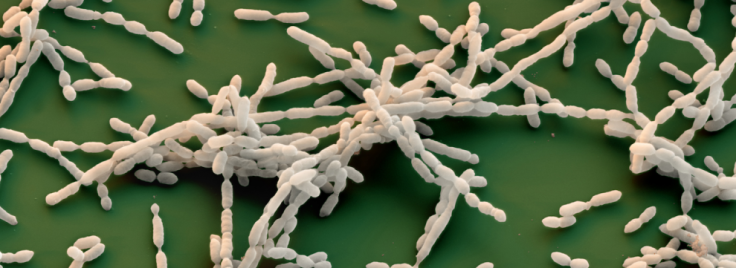Gut Bacteria May Impact Heart Health, Affecting Prescription Drug Function

Building evidence has shown that the close to 2 lbs. of bacteria that we live symbiotically with and that inhabit out digestive tract are both sensitive to our behavior and can impact our health. But new research shows that specific gut bacteria can also impact how our bodies metabolize and use prescription medications, which may explain why some drugs work better in some rather than others.
Digoxin is a heart mediation that has a very narrow range of effective dosage; too much can kill a person, and too little does nothing. Just the right amount of the drug is extremely helpful for certain patients who have heart conditions. But the drug does not work in every patient, and doctors and scientists have been scratching their heads in order to figure out why there is some selective efficacy in only a subset of patients.
Various studies have linked gut bacteria to autoimmune diseases and other conditions, so researchers at Harvard University wanted to see if gut bacteria could impact the function of a prescription medication and published their results in the journal Science. The researchers found that a specific harmless gut bacteria, Eggerthella lenta, has a cluster of genes that can be activated by the drug digoxin under conditions where the amino acid arginine is in high concentrations, such as in protein-rich environments.
The researchers set out to see if the function of the bacteria having their genes activated by the drug had an effect on the drug in animals. Scientists took "germ-free" mice, which are mice bred in special conditions where they never come into contact with bacteria or viruses during their lifetime. Eggerthella lenta bacteria were introduced to the mice, and the mice were given the drug digoxin and either fed a high-protein or no-protein diet. They found that the mice given the high-protein diet properly metabolized the drug, while the no-protein diet mice did not.
This means that the gut bacteria could artificially speed up the metabolism of the drug, which turns it into other chemicals, more quickly than the body can. The problem with this is that the drug may be metabolized before it can take effect, or its effect could wear off more quickly in some patients compared to others.
This research is one of the first studies to look at the role of gut microbiota, such as bacteria, and their impact on the function and metabolism of a drug. The research may go a long way to explain why some drugs are effective in certain populations of people and not others. Because of the some 10 trillion bacteria and thousands of species found in the human digestive tract, sorting out all of the drug-bacteria interactions may take some time and will be a focus in future drug development.
The researchers in this current study propose that further studies on patients who have heart problems and are taking digoxin should be pursued. They suggest that a quick laboratory test of the gut bacteria a person has may tell a doctor ahead of time if a drug like digoxin will be effective in the patient before treatment is started. They also suggest that diet modification, such as lowering protein intake, could also help those with the specific strain of bacteria that metabolizes digoxin. All in all, as we explore the complex interplay among our symbiotic gut bacteria, our diet, and our medications, we learn more about how they all affect each other and our health.
Source: Haiser H, Gootenberg D Chatman K, et al. Predicting and Manipulating Cardiac Drug Inactivation by the Human Gut Bacterium Eggerthella lenta. Science. 2013.
Published by Medicaldaily.com



























